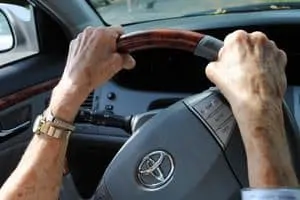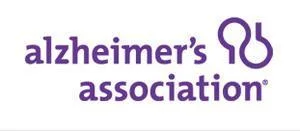Taking Away the Car Keys & List of Transportation Options

If your family member has increased dings and dents on their car, moving violations, accidents, gets lost while driving or is frequently delayed and can’t offer a reasonable explanation, it might be time to take away the keys.
This is one of the most difficult decisions a family has to make. For the individual giving up the car keys is one of the hardest losses. It's a loss of self-reliance and freedom.
When it’s time to have a supportive conversation about letting go of driving privileges, I offer the following advice:
- Start the conversation by acknowledging that this is a difficult topic.
- Select a place and have enough time set aside for a supportive conversation.
- Be prepared that many individuals with cognitive impairment are unable to assess their own driving skills and therefore do not agree with the need to relinquish driving privileges.
- Appeal to the individual’s sense of responsibility and safety.
- Encourage the individual to seek the input of a primary physician.
- Know that this is process and will take time. If there is ongoing resistance, ask another family member or legal authority to have the conversation.
- Arrange an independent driving evaluation if the individual disagrees. In New Jersey, contact Kessler Rehab driving evaluation or the DMV state driver's evaluation Have alternate transportation arrangements in place before keys are relinquished (see section Transportation Options). This is critical to achieving a successful outcome.
Individuals who maintain an active life style can adjust better to the loss of driving privileges.
Consider:
- Having groceries, medication and other online deliveries
- Arrange friends and family to drive to social events and outings
- Seek local programs that include transportation services
Transportation Options
In addition to transportation arrangements by friends and family, here are some additional options to consider that are offered in New Jersey. Outside New Jersey, contact the Department of Senior Services in your area for transportation options.
Access Link NJ Transit
800-955-2321
Provides curb to curb service for eligible people with disabilities who are located within ¾ mile from bus routes.
Access Link service is comparable to the NJ TRANSIT local bus network. Transportation is provided during the same hours, days, and at the same fares as the local bus network. You must first apply in person. Arrangements for transportation for you to come and fill out the application can be made.
24 hours access 973-275-5555 (NJ Transit information center)
Hearing impaired 1-800-772-2287
Bergen County Community Transportation
201-368-5955
178 Essex St., Lodi, NJ 07644
Provides a safe, trouble-free, scheduled transportation system for the elderly and frail residents of Bergen County (door to door service).
Monday -Friday. Private weekend trips for a fee
Discount/Reduced Fare for NJ Transit Bus & Rail
973-491-7112
Seniors or people who have been determined disabled are eligible
201-336-7400
to pay no more than one-half the regular one-way fare on all interstate bus, rail routes, and most interstate bus and rail routes into adjacent states (NY and PA).
Applications are available through the Division of Senior Services.
[email protected]
Driver On Call
888-71-DRIVE
Service is 24/7
Uniformed, licensed and insured drivers
drive the client’s own vehicle.
$25 an hour- Drivers wait for clients and assists
As necessary
Driveroncall.net
EZ - Ride
201 -939-4242
144 Park Place East, Wood-Ridge, NJ 07075
Affordable senior Transportation 5 days a week 830a-5p. Annual membership, pickup and mileage fee may apply.
PAAD Discount Available
Out of county trips
Last minute transport
[email protected]
EZ RIDE Ryde4Life Program
New transportation option for seniors in partnership with Transportation Network Companies like Uber and Lyft, which offers rides to individuals over 60 years throughout NJ and is offered all working days from 8:00am to 5:00pm. Seniors can request rides in real time or scheduled in advance and a smart phone is not required. A credit or debit card (Visa or MasterCard) is required to open an account. Fees/taxes apply. Registration required. To learn more about this program call M-F 8am-5pm 866-208-1307, x4 or email [email protected] or go to www.ezride.org.
GoGo Grandparents
855-464-6872
On demand 24/7 car service.
855-gogo-usa
Operators arrange transportation for older adults through Uber and Lyft. No smart phone is necessary.
Gogograndparent.comOperators connect older adults to Uber so smart phone not necessary. Rides monitored. Fees involved.
ITN North Jersey
201-398-6885
205 Hillcrest Avenue, Wyckoff, NJ 07481
Provides affordable transportation for older adults 7 days a week. An annual membership, pickup and mileage fee may apply. 2.50 pick-up 1.50 per mile and $90 yearly fee.
Bergen County Only
www.itnnorthjersey.org/contact...
Uber Car service
On demand 24/7 car service.
You will first have to sign up by downloading the app on your cell phone and set up an account with your credit card.
www.uber.com
Traveling Made Easy
973-332-9659
Non-Medical Wheelchair Transport Service
$100 Flat fee and $3 per mile
Out of county and out of State
http://www.travelingmadeez.com...
Need additional guidance to take away the car keys or other challenges you are facing as a dementia caregiver, contact me
Guest Contributor:
Deborah Nachman-Mangot, D.D.S.
The Importance of Dental Care in the Alzheimer and Dementia Individuals

The physical capabilities and manual dexterity of the dementia and Alzheimer patient coupled with their decreased ability to travel to their dentist’s office lead to many instances of sub optimal care or neglect of their oral health. It is therefore, imperative that family members become significantly involved, to the best of their abilities, in the day-to-day care of these individuals so that they have their basic oral health needs met. This article will address some of the causes of dental problems and what you can do to mitigate their impact in an effective manner.
We all have our own lives with their associated responsibilities, so helping to care for a loved one in this situation is highly stressful, emotional and can be exhausting. It is therefore prudent to develop a plan of care and maintenance to make it easier for both family and patient. Dementia and Alzheimer’s individuals with teeth will develop cavities (decay) and periodontal disease (gum disease) without daily tooth brushing due to plaque accumulations. Daily tooth brushing habits are important to develop from the beginning. The individual may forget or be incapable of properly brushing their teeth. They can become uncooperative and disagreeable rendering them unable to perform this basic task. These individuals are hypersensitive in their head and neck region, so daily tooth brushing will desensitize this area and the process will become easier for everybody. I recommend that the caregiver approaches their loved one during a time after meals and when they are quiet and content (maybe when they are sitting in front of the television). It is best to brush teeth after meals so that the food and debris do not sit on their gums or in their cheeks (if they have a swallowing issue) and cause inflammation. The more inflammation that occurs, the more bleeding and uncomfortable brushing becomes and the less likely to get the task done.
Those who wear removable dentures will develop inflammation on their upper and lower ridges, along with bone loss, if the dentures are ill-fitting. Dentures should be evaluated for proper fit as an ill-fitting or loose denture will compromise patient comfort, ability to eat and cause soft tissue and bone problems. It may be necessary to re-line the existing denture or even re-make it when a repair is not possible or practical. The dentures also need to be removed and cleaned daily to prevent inflammation of the supporting gums and prevent fungal infections from occurring. Patients in this population have a tendency to refuse to wear their dentures at all if they do not wear them on a daily basis. This may have a negative effect on their diet.
Oral conditions will also be affected by underlying medical situations and medications that are taken. It is also important to treat any dental problem since inflamed and infected gums and decayed teeth will have an adverse impact on medical conditions such as heart disease and diabetes. Diabetes is a disease of the small blood vessels and individuals with periodontitis harbor harmful bacterial complexes that worsen the diabetic state through increased blood glucose levels. It is well documented that periodontal disease also has a direct correlation with worsening of existing cardiac conditions.
To prevent such issues, caregivers should continue to take their loved ones to their dentist for regular check-ups and cleanings every 3-6 months until they begin to refuse (cancelling appointments, cannot get into a vehicle or too anxious to sit in the dental chair), at which time you should request a visit by a mobile dentist who will be able to provide dental services in your home. A mobile dentist provides professional dental care by transporting the dental office to your home. Treatments include dental cleanings, fillings, extractions (removal of teeth and roots), fabrication and repairs of removable dentures and much more.
By taking these steps, the family and patient can avoid or minimize potential problems thereby reducing stress on all the involved parties and ensuring continuity of care.
Dr. Deborah Nachman-Mangot has been practicing mobile dentistry for over 15 years as well as servicing the Alzheimer's and dementia population. She graduated Northwestern University Dental School and completed a one year hospital residency program at Beth Israel Medical Center in Irvington, NJ. She is very active in organizations associated in the geriatric population and Alzheimer's in particular.
We are pleased to be able to provide this information which is helpful to you and your family members. If you would like to contact me for more information about anything referenced in the article please email me at [email protected] or call us at 201-785-4146.
Increase Federal Funding for Alzheimer’s Research

The Alzheimer’s Association, the Alzheimer’s Impact Movement (AIM) and our nationwide network of dedicated advocates are celebrating breaking news from Washington - federal research funding for Alzheimer’s at the National Institutes of Health (NIH) will receive a $400 million increase in the FY2017 budget, bringing the total amount of federal research funding to nearly $1.4 billion annually. This is the largest Alzheimer’s research funding increase in history and marks the second year that Alzheimer’s research has been singled out for historic increases.
Content from the Alzheimer’s Association
Father Day Gift Ideas

With Father’s Day approaching here are some gift ideas for Dads who are caregivers. Thinking about the different challenges that many male caregivers face, here are gift ideas for that super hero, Dad
A Second Set of Hands- hire outside assistance to supplement Dad’s caregiving responsibilities
- Meals- bring prepared meals that can be served or frozen for future use
- Cleaning Service- hire a regularly scheduled cleaning service
- Emotional Support- go with Dad to a monthly caregiver support group
Time Out- get tickets for Dad and another family member or friend to go to a sports, recreational or cultural event. - Dinner and a movie, lecture or concert. No doubt caregivers deserve time out and need to be with people. Give a gift certificate for two and let the caregiver do the asking.
- Regular scheduled visit. Caregivers need company. They often complain of isolation. Visits can be a combination of phone and in person visits on a weekly or more frequent basis.
- Medical Alert System: Sometimes a caregiver is afraid to step away and it is common for individuals with dementia to wander. A medical alert system will give a caregiver peace of mind.
- Gift certificate or gift cards. Many family members take unpaid leave or cut down on their work hours to provide care. Gift cards and cash are well earned and always welcomed.
- Easy activity to do with care recipient –TV game shows, Mary Tyler Moore Show, Dick Van Dyke Show were a delight for Mom. They have remastered the entire series. If you want to purchase visit Amazon here –>
Dick Van Dyke Show – Complete Remastered Series—
Father’s Day Gifts should help to unburden the responsibilities of caregiving. As a suggestion, it’s helpful when conveying your gratitude to Dad, share that there is no perfect caregiver only a loving caregiver.
Want to brainstorm more ideas for a meaningful Father’s Day gift specific to your someone special? Contact me.



